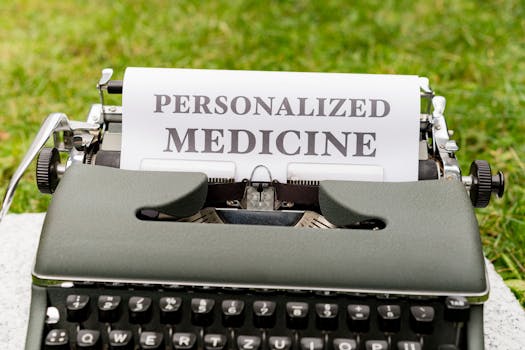
The Role of Genetics in Human Health and Disease
Genetics plays a crucial role in Genetics in human health and disease, and understanding the genetic basis of disease is essential for developing effective treatments and prevention strategies. The human genome is made up of more than 3 billion base pairs of DNA, and variations in this genetic code can affect an individual’s risk of developing certain diseases. In this article, we will explore the role of genetics in human health and disease, and discuss the latest advances in genetic research and their implications for healthcare.
Introduction to Genetics

Genetics is the study of heredity and variation. It involves the study of genes, which are the basic units of heredity, and how they are passed from one generation to the next. The human genome is made up of more than 20,000 protein-coding genes, and each gene has a specific function. Genetic variations, such as mutations and polymorphisms, can affect the function of genes and increase an individual’s risk of developing certain diseases.
Genetic Basis of Disease

The genetic basis of disease is complex and involves the interaction of multiple genetic and environmental factors. Genetic disorders can be caused by mutations in a single gene or by the combined effects of multiple genetic variants. Some genetic disorders are inherited in an autosomal dominant pattern, where a single copy of the mutated gene is enough to cause the disease. Others are inherited in an autosomal recessive pattern, where an individual must inherit two copies of the mutated gene to develop the disease.
Types of Genetic Disorders

There are several types of genetic disorders, including single-gene disorders, multifactorial disorders, and chromosomal disorders. Single-gene disorders are caused by mutations in a single gene and include diseases such as sickle cell anemia and cystic fibrosis. Multifactorial disorders are caused by the combined effects of multiple genetic variants and environmental factors, and include diseases such as heart disease and diabetes. Chromosomal disorders are caused by changes in the number or structure of chromosomes and include diseases such as Down syndrome and Turner syndrome.
Genetic Testing and Counseling

Genetic testing and counseling are essential for individuals who are at risk of developing a genetic disorder. Genetic testing involves the analysis of an individual’s DNA to identify genetic variants that may increase their risk of developing a disease. Genetic counseling involves the interpretation of genetic test results and the provision of information and support to individuals and families who are at risk of developing a genetic disorder.
Advances in Genetic Research

There have been many advances in genetic research in recent years, including the development of new genetic testing technologies and the discovery of new genetic variants associated with disease. The use of genome-wide association studies (GWAS) has identified many new genetic variants associated with complex diseases such as heart disease and diabetes. The development of CRISPR-Cas9 gene editing technology has also raised the possibility of treating genetic disorders by editing the genes that cause them.
Implications for Healthcare

The advances in genetic research have many implications for healthcare. Genetic testing and counseling can help individuals and families who are at risk of developing a genetic disorder to make informed decisions about their healthcare. The development of new treatments and therapies targeted at the genetic basis of disease also holds great promise for improving healthcare outcomes.
Conclusion

In conclusion, genetics plays a crucial role in human health and disease, and understanding the genetic basis of disease is essential for developing effective treatments and prevention strategies. The latest advances in genetic research and their implications for healthcare are exciting and hold great promise for improving healthcare outcomes. As our understanding of the genetic basis of disease continues to grow, we can expect to see the development of new and more effective treatments and therapies for a wide range of diseases.





